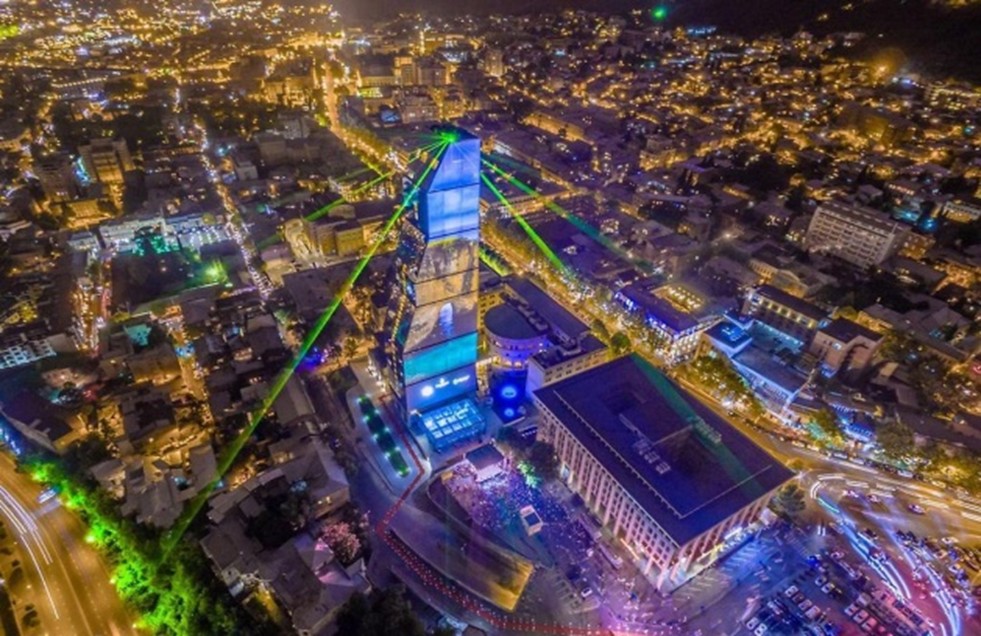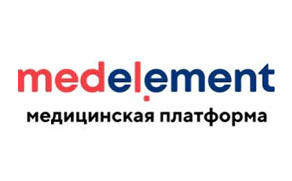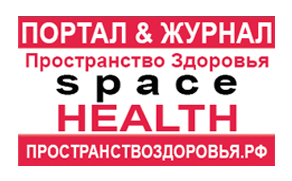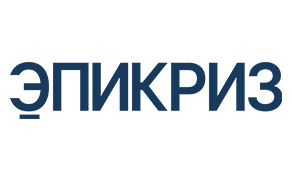Program
October 3rd, 2025
| Date | October 3rd, 2025 | ||
| Start | End | Venue: Bioli Resort | |
| 8:00 | 18:00 | Registration | |
| 9:30 | 9:40 | Welcome Address | |
| 9:40 | 10:30 | Pediatric ophthalmology update | |
| Moderators: Mohamad El Sada, Sargsyan Inga | |||
| 9:40 | 9:50 | Mohamad El Sada | Pediatric Ocular conditions difficult to manage. Why and how to proceed. |
| 9:50 | 9:57 | Kuzmin Nikita
Ustinova Nataliya, Pozdeyeva Nadezhda |
Disorders of Neurodevelopment and Somatic Health Characteristics in Blind and Visually Impaired Children. Diagnostic Challenges |
| 9:57 | 10:04 | Kourosh Shahraki | Application of Finite Element Analysis in pediatric ocular trauma |
| 10:04 | 10:11 | Sargsyan Inga
Gabrielyan Aaron |
BCG-induced uveitis in a newborn (case report) |
| 10:11 | 10:18 | Agagulian Sati
Aznauryan Igor, Balasanyan Victoria, Makarova Evdokia |
Teleophthalmology in Action: Closing the Treatment Gap with Remote Care |
| 10:30 | 11:00 | Coffee Break | |
| 11:00 | 12:25 | Pediatric Glaucoma | |
| Moderators: Hala Elhilali, Sushmita Kaushik, Nana Digmelashvili | |||
| 11:00 | 11:10 | Sushmita Kaushik | Managing pediatric glaucoma: not little adults! |
| 11:10 | 11:20 | Nana Digmelashvili | Tips for glaucoma diagnosis in children |
| 11:20 | 11:30 | Hala Elhilali | Circumferential angle surgery for congenital glaucoma |
| 11:30 | 11:40 | Artashes Zilfyan | MIGS and MIMS glaucoma surgery in Juvenile Glaucoma |
| 11:40 | 11:47 | Sushmita Kaushik | Choosing surgery for childhood glaucoma |
| 11:47 | 11:54 | Nana Digmelashvili | Stem cell therapy for childhood optic nerve atrophy. |
| 11:54 | 12:04 | Tatsiana Imshenetskaya Galina Vashkevich, Volha Yarmak, Maria Kozlovskaya, Robert Yermalkevich | Secondary glaucoma following vitreo-retinal surgeries |
| 12:04 | 12:11 | Sushmita Kaushik | MIGS in juvenile open angle glaucoma |
| 12:25 | 12:55 | Key Note Lecture | Teimuraz Mikeladze |
| Diagnostic algorithms for periodic fever in children | |||
| Introduction | Zaza Khotenashvili | ||
| 12:55 | 13:30 | Opening of the Meeting President of GOS Khotenashvili Zaza, MD, Dr Sc, Prof Minister of Health of Georgia Mikhail Sargveladze President of AOS Aznauryan Igor, MD, Dr Sc, Prof Vice-President of AAPOS Christie Morse, MD | |
| 13:30 | 14:15 | Lunch Break | |
| 14:15 | 15:35 | AAPOS session From Common to Complex: Modern Management of Childhood Eye Diseases | |
| Moderators: Lisa Vredevoogd, Jason Peragallo | |||
| 14:15 | 14:25 | Jason Peragallo | Pediatric Idiopathic Intracranial Hypertension |
| 14:25 | 14:35 | Lisa Vredevoogd | The Effects of Electronics on the Pediatric Eye |
| 14:35 | 14:45 | Mohney Brian | Ocular Sequelae in a Population-Based Cohort of Children Diagnosed with Diabetes Mellitus over a 50-Year Period |
| 14:45 | 14:55 | Lance Siegel | Hiding in Plain Sight (Drusen/PHOMS, choroidal nodules in NF-1, physiologic ON cupping, dermoids, hemangiomas) |
| 14:55 | 15:05 | Himanshu Patel | Excavated Optic Disc Anomalies |
| 15:05 | 15:15 | Dangda Sonal | Pediatric Glaucoma in Association with Ocular and Systemic Syndromes |
| 15:35 | 16:00 | Coffee Break | |
| 16:00 | 17:10 | Vision Therapy | |
| Moderators: Zoran Pejic, Rozanova Olga, Sameera Irfan | |||
| 16:00 | 16:07 | Sameera Irfan | Amblyopia is Fully Treatable at Any Age? |
| 16:07 | 16:14 | Zoran Pejic | Orthoptics in management of strabismus |
| 16:14 | 16:21 | Rychkova Svetlana Aznauryan Igor, Balasanyan Victoria, Agagulian Sati | Comparison of the effectiveness of using liquid crystal glasses “Srabo Glasses” and transcutaneous electrical stimulation to improve visual functions in children with partial optic nerve atrophy. |
| 16:21 | 16:28 | Sukhanova Natella | Possibilities of using test images to detect achromatopsia |
| 16:28 | 16:35 | Savunova Tatiana Imshenetskaya Tatsiana | Visual rehabilitation of preschool children with various ophthalmopathologies |
| 16:35 | 16:42 | Galbinur Aysel Abdullayeva M. Gulnur | Evaluation of the effects of combined treatment of vision therapy and patching for the management of hyperopic anisometropic amblyopia in adolescents |
| 16:42 | 16:49 | Rozanova Olga | Unconventional approach to binocular interaction assessing. |
| 17:10 | 17:40 | Key Note Lecture | Merab Dvali (Georgia) |
| Introduction | Lia Jorjikashvili | ||
| 25 Years of Pediatric LASIK | |||
October 4th, 2025
| Date | October 4th, 2025 | ||
| Start | End | Venue: The Biltmore Hotel Tbilisi | |
| 9:00 | 18:00 | Registration | |
| 8:30 | 9:30 | Workshop | |
| Strabo Glasses in Amblyopia and Strabismus Treatment | |||
| 10:00 | 11:10 | Advanced Surgical Techniques in Childhood Strabismus and Nystagmus | |
| Moderators: Donny Suh, Balasanyan Victoria, Zhukova Olga | |||
| 10:00 | 10:07 | Popova Natalia | Multifaced Brown’s Syndrome |
| 10:07 | 10:14 | Ahmed Awadein | Management of isolated inferior rectus palsy |
| 10:14 | 10:21 | Donny Suh | Think Small, See Big: The Power of Mini-Incision Strabismus Surgery |
| 10:21 | 10:28 | Zhukova Olga | Modified duplication of the oculomotor muscles: features and advantages |
| 10:28 | 10:35 | Uzuev Magomed Aznauryan Igor, Balasanyan Victoria | The new method for calculating surgical treatment of nystagmus using the StraboSoft system |
| 10:35 | 10:42 | Tariek Mohammed Aldoais | Superior rectus transformation in management of Duane retraction syndrome |
| 10:42 | 10:49 | Mahmoud Fayed | Reoperative Strabismus: How Forced Duction and Intraoperative Exploration Shape Surgical Strategy(case report) |
| 10:49 | 10:56 | Ahmed Wagdy | Acute strabismus – activate the alarm |
| 10:00 | 11:10 | Childhood Refractive Errors: Interactions of Anatomy, Environment, and Visual Function | |
| Moderators: Zoran Pejic, Jason Yam | |||
| 10:00 | 10:07 | Olevskaia Elena Kukoleva Lyudmila, Ryabova Liliya, Guseva Alyona, Tonkikh Nataliya | Exploring the Interaction of Intraocular Pressure, Choroidal Thickness and Accommodation in Children with Progressive Myopia |
| 10:07 | 10:14 | Rezbaeva Gulnara Dudurich Vasilisa, Orenburkina Olga, Babushkin Alexander, Sogomonyan Karina, Danilova Alexandra, Danilov Lavrentii | The structure of the microbiota of the ocular surface in children with and without myopia |
| 10:14 | 10:21 | Leutkina Yuliya | To walk or not to walk. Prevention of myopia in schoolchildren in the conditions of the city of Eastern Siberia with the developed aluminum industry |
| 10:21 | 10:28 | Ugryumova Tatyana | Keratometry and Biometry Data in Refractogenesis Assessment in Children |
| 10:28 | 10:35 | Shestak Nataliya Aznauryan Igor, Rychkova Svetlana, Agagulian Sati, Balasanyan Victoria, Glebova Elena, Laver Alexander, Kurysheva Nataliya | The results of visual function analysis in children with a history of brain tumors |
| 11:10 | 11:30 | Coffee Break | |
| 11:30 | 13:00 | AAPOS session Modern Trends in Strabismus Surgery: Precision, Outcomes, and Innovations | |
| Moderators: Christie Morse, Lance Siegel | |||
| 11:30 | 11:37 | Miguel Paciuc-Beja | First Surgery after 20 or more years of Longstanding Strabismus – Ophthalmologist and Patient Perspectives and Goals |
| 11:37 | 11:44 | Jonathan Holmes | Update on Childhood Intermittent Exotropia |
| 11:44 | 11:51 | Orwa Nasser | Management approach to Congenital Nystagmus syndrome |
| 11:51 | 11:58 | Luis Javier Cardenas Lamas | Dynamic Surgery for Restrictive Strabismus |
| 11:58 | 12:05 | Anne Langguth | More than Just Cosmesis: The Psychosocial Impact of Strabismus |
| 12:05 | 12:12 | Birsen Gokyigit | Surgical Treatment of Complete CN3rd. Palsy and Long-Term Results of 58 Cases |
| 12:12 | 12:19 | Chatzistefanou Klio | Surgical Management of Diplopia in Dysthyroid Ophthalmopathy |
| 12:19 | 12:26 | Orwa Nasser | Surgical options for Congenital Nystagmus syndrome |
| 13:00 | 13:30 | Key Note Lecture | Aznauryan Igor |
| A Stepwise Algorithm for Managing Concomitant Horizontal Esotropia | |||
| Introduction | Balasanyan Victoria | ||
| 13:30 | 13:50 | Lunch Break | |
| 13:50 | 15:20 | IPOSC session LAZY “I” Amblyopia Around the Globe | |
| Moderators: Tamara Wygnanski-Jaffe, Jonathan Holmes | |||
| 13:50 | 13:57 | Sati Agagulian | Amblyopia Treatment Efficacy in Children: The Advantage of Early Refractive Management |
| 13:57 | 14:04 | Jonathan Holmes | Glasses and Patching for Amblyopia |
| 14:04 | 14:11 | Alejandro Armesto | The Role of Near vision in assessment of amblyopia |
| 14:11 | 14:18 | Paris Vincent | Management of strabismic functional amblyopia : focus on the use of fixation |
| 14:18 | 14:25 | Kaushik Murali | The role of technology in screening for amblyopia |
| 14:25 | 14:32 | Tamara Wygnanski-Jaffe | New Treatments for Amblyopia |
| 14:39 | 14:46 | Eedy Mezer | The trends and causes of Amblyopia in Israel over a century |
| 15:20 | 15:40 | Coffee Break | |
| 15:40 | 16:10 | Key Note Lecture | Kenneth Wright |
| Advancements and Innovations in the Treatment of Strabismus | |||
| Introduction | Sonal Farzavandi | ||
| 16:10 | 17:30 | Strabismus & Eye Movement Disorders | |
| Moderators: Heba Metwally, Galton Vasconcelos, Popova Natalia | |||
| 16:10 | 16:17 | Galton Vasconcelos | Challenges in the treatment of the sagging eye syndrome? |
| 16:17 | 16:24 | Heba Metwally | Rectus pulley instability |
| 16:24 | 16:31 | Korolenko Anna | Strabismus Management: What to do, When, Where and How |
| 16:31 | 16:38 | Kuznetsov Evgenii Aznauryan Igor, Balasanyan Victoria | Video-Oculography vs. Standard Diagnostic Methods in Binocular Vision Assessment: A Comparative Study |
| 16:45 | 16:52 | Rozanova Olga | Epidemic of diplopia in adults. |
| 16:52 | 16:59 | Egorova Alla | Accommodative and Vergence Disorders: Their Role in the Practice of an Ophthalmologist |
| 16:59 | 17:06 | Husain Yusuf AlHarmi | Esotropia and Thyroid eye disease. |
| 17:06 | 17:13 | Ushnikova Olga Casanave Daniel, Ushnikov Alexander | Surgical removal of congenital ptosis by plasty of the frontal muscle in children with minimal or no function of the upper eyelid lifting muscle (“Frontal Flap” method) |
| Workshop | |||
| 17:40 | 18:25 | Faruk Orge | VR Glasses in ROP Education |
| Current Trends in Pediatric Ophthalmology Practice | |||
| Moderators: Sonal Farzavandi, Sati Agagulian | |||
| 16:10 | 16:17 | Csilla Serfozo | Beyond the Obvious: A Case of Recurrent Cranial Nerve Dysfunction in a Child |
| 16:17 | 16:24 | Damla Culha | Complications after Soft contact lenses |
| 16:24 | 16:31 | Mohamed Salem | Snow to Sand Syndrome: Protecting Pediatric Vision Across Extreme Biomes |
| 16:31 | 16:38 | Sultanbayeva Zhansaya Bahytbek Raushan | Microbial Spectrum and Resistance Trends in Infants with Congenital Obstruction of the Nasolacrimal Duct: A Retrospective Study |
| 16:38 | 16:45 | Kenesov N.M. Botabekova T.K., Begimbaeva G.E., Keykina L.K., Madekhanova D.E. | Assessment of the Long-Term Efficacy and Safety of Laser Vision Correction in Children with Hyperopia, Astigmatism, and Strabismus: Perspectives and Risks |
| 16:45 | 16:52 | Nikitina Anna | Five Key Communication Barriers in Pediatric Strabismus: A Qualitative Study of Parental Perspectives |
| 16:52 | 16:59 | Charlene Yim | Association of Optical Coherence Tomography Angiography Metrics With Detection of Impaired Macular Microvasculature and Amblyopic Eyes: The Hong Kong Children Eye Study |
| Workshop | |||
| 17:40 | 18:25 | Online Oko – telemedicine platform for vision therapy | |
October 5th, 2025
| Date | October 5th, 2025 | ||
| Start | End | Venue: The Biltmore Hotel Tbilisi | |
| 9:00 | 17:00 | Registration | |
| 10:00 | 11:20 | Retina | |
| Moderators: Hussain Ahmad Khaqan, Chan Choi Mun, Shalva Skhirtladze, Saadia Zohra Farooqui | |||
| 10:00 | 10:07 | Chan Choi Mun | Retinal dystrophy. Treatment and néw advances. |
| 10:07 | 10:14 | Shalva Skhirtladze Giorgi Mekvabishvili | Giant Optic Disc Drusen: Clinical Manifestation and Follow up in Patient with Progressive Myopia |
| 10:14 | 10:21 | Volha Yarmak Tatsiana Imshenetskaya, Vladimir Markevich, Abusaffaka Saleh, Maria Kozlovskaya | Surgical Treatment of Retinal Detachment in Young Patients |
| 10:21 | 10:28 | Hussain Ahmad Khaqan | Paediatric GRT – Manage wisely |
| 10:28 | 10:35 | Saadia Zohra Farooqui | Decoding genetic eye disease: Leber Congenital Amaurosis |
| 10:35 | 10:42 | Shvailikova Inna | The clinical case of X-linked retinitis pigmentosa in childhood |
| 10:42 | 10:49 | Bryantseva Ekaterina | Analysis of Electroretinography and Optical Coherence Tomography Findings in Various Retinal Diseases |
| Anterior Segment | |||
| Moderators: Donny Suh, Markova Elena, Tarek Katamish | |||
| 10:00 | 10:07 | Markova Elena | Long-Term Efficacy of Corneal Cross-Linking in Children with Keratoconus: 9-Year Results |
| 10:07 | 10:14 | Nada Alyusuf | Pediatric keratoconus |
| 10:14 | 10:21 | Mordyukov Evgeniy Aznauryan Igor, Balasanyan Victoria | Changing the Paradigm: Laser Vision Correction as Early Intervention for Accommodative Strabismus |
| 10:21 | 10:28 | Moemen Alreefy | Comprehensive presentation on surgical solutions for high hyperopia with emphases on piggyback technique |
| 10:28 | 10:35 | Tarek Katamish | DMEK for Pediatric Age Group |
| 10:35 | 10:42 | Koko A. Keikina Lyazzat | Effectiveness of corneal ulcer treatment in measles-associated infection |
| 10:42 | 10:49 | Keikina Lyazzat Kebirov R.A. | Clinical сase of Vivity intraocular lens implantation in bilateral congenital cataract |
| 10:49 | 10:56 | Yevgeniy Batkov | Optic Component Exchange of a Pediatric Modular Intraocular Lens: Initial Experience |
| 10:56 | 11:03 | Mohammed Basuliman | From most difficult to easiest step in pediatric cataract surgery |
| 11:03 | 11:10 | Egiyan Naira | Peculiarities of Surgical Management and Intraocular Correction of Congenital Cataract in Pediatric Patients |
| 11:20 | 11:40 | Coffee Break | |
| 11:40 | 12:10 | Key Note Lecture | Faruk Orge |
| KTEF AAO Virtual Reality Platform ROP Module | |||
| Introduction | Christie Morse | ||
| 12:10 | 13:50 | ISA session Complications in Strabismus Surgery | |
| Moderators: Andrea Molinari, Christie Morse | |||
| 12:10 | 12:20 | Andrea Molinari | Lost/Slipped muscle |
| 12:20 | 12:30 | Rosario Gomez de Liano | Overcorrections in Strabismus Surgery |
| 12:30 | 12:40 | Nikos Kozeis | Undercorrections in Strabismus Surgery |
| 12:40 | 12:50 | Giovanni Batista Marcon | Anterior Segment Ischemia |
| 12:50 | 13:00 | Christie Morse | Complications Following Strabismus Surgery: An IRIS Registry Study |
| 13:00 | 13:10 | Sara Flodin | Diplopia after Strabismus Surgery |
| 13:10 | 13:20 | Seyhan Özkan | Eyelid alterations related to strabismus surgery |
| 13:20 | 13:30 | Victoria Balasanyan | Surgical treatment of partial accommodative strabismus: problems and prognosis |
| 13:50 | 14:30 | Lunch Break | |
| 14:30 | 15:50 | APSPOS session Surgical Surprises | |
| Moderators: Sonal Farzavandi, Amila de Alwis | |||
| 14:30 | 14:39 | Balasanyan Victoria | Diplopia following vertical strabismus surgery – Surprise for Surgeon |
| 14:39 | 14:48 | Siddharth Agrawal | Surprises in Vertical Muscle Surgery |
| 14:48 | 14:57 | Amila de Alwis | A surprising indication to perform Strab Surgery |
| 14:57 | 15:06 | Sonal Farzavandi | How did this happen? |
| 15:15 | 15:24 | Miho Sato | Permanent vision loss after strabismus surgery |
| 15:50 | 16:10 | Coffee Break | |
| 16:10 | 16:40 | Key Note Lecture | Jason Yam |
| An update on interventions for myopia control | |||
| Introduction | Sati Agagulian | ||
| 16:40 | 18:00 | Pediatric Ophthalmooncology | |
| Moderators: Saakyan Svetlana, Amiryan Anush, Hussain Ahmad Khaqan | |||
| 16:40 | 16:55 | Saakyan Svetlana | Diagnosis and Treatment Strategies for Retinoblastoma: Current Approaches and Future Directions |
| 16:55 | 17:05 | Amiryan Anush | Сlinical features and imaging presentation of orbital dermoid cysts |
| 17:05 | 17:15 | Malinouskaya Inna Koen van Overdam, Imshanetskaya Tatyana | Management of retinal capillary hemangioblastoma |
| 17:15 | 17:25 | Hussain Ahmad Khaqan | Novel techniques for for retinoblastoma (10 years outcomes) объединенная лекция |
| 17:25 | 17:32 | Alua Aubakirova Neilya Aldasheva, Ali Issayev, Akmaral Abikulova | The level of awareness about retinoblastoma among physicians of various specialties |
| 17:32 | 17:39 | Hussain Ahmad Khaqan | COAT’S Disease – How to treat |
| 17:39 | 17:46 | Ushnikova Olga Ushnikov Alexander | Differential diagnosis of rhabdomyosarcoma with lacrimal sac phlegmon and eyelid neoplasm. |
| 16:40 | 18:00 | Retinopathy of Prematurity (ROP) | |
| Moderators: Faruk Orge, Irakliy Abuladze, Irina Astasheva | |||
| 16:40 | 16:55 | Astasheva Irina Tumasyan Alexander, Kuznetsova Yuliya | Differential Diagnosis of Severe Forms of Retinopathy of Prematurity |
| 16:55 | 17:05 | Aleksandrova Svetlana | Comparative analysis of refraction in children with retinopathy of prematurity treated with anti-VEGF therapy or laser coagulation |
| 17:05 | 17:15 | Sharipova Assel | “I See the World”, a unique program for preventing an epidemic of blindness caused by retinopathy of prematurity in Kazakhstan |
| 17:15 | 17:25 | Sutbayeva Aidana Sharipova A. U., Ayaganov D. N. | Prognostic Role of Early Diagnosis and Treatment of Aggressive Retinopathy of Prematurity with Intraventricular Hemorrhage |
| 17:25 | 17:32 | Smagulova S. A. Sharipova A. U. | Combined Surgical Treatment for Severe Forms of Retinopathy of Prematurity: Approaches, Efficacy, and Clinical Outcomes |
| 18:00 | 18:20 | Closing Ceremony | |
Registration
Registration Fees 9990 rubles
Gala-dinner 9990 rubles
Dear Colleagues, 2025 meeting official language is English. Simultaneous translation from English to Russian will also be organized.
Conference Registration Fees for TIOC 2025:
- Early Bird (Until May 31): 9990 rubles
- Standard (June 1 – until August 31): 12500 rubles
- Late Registration (September 1 – until October 3): 17000 rubles
- On-site Registration – 24600 rubles
The cost for attending the Gala-evening is 9990 rubles (optional).
Important: Flight and accommodation are not included in the registration fee.
Upon completing all required registration fields, you will be directed to the online payment portal, where you can securely process the registration fee using a valid Russian credit or debit card.
Attention: To pay with foreign cards, send us an email info@raos.org or by phone Whatsapp +7 (964) 722 94 02
From October 1: On-site payment only
Organizing Committee



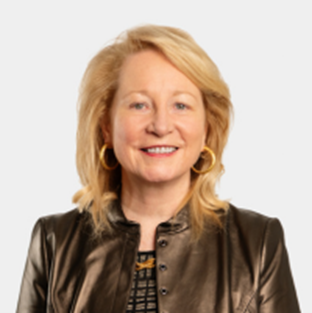


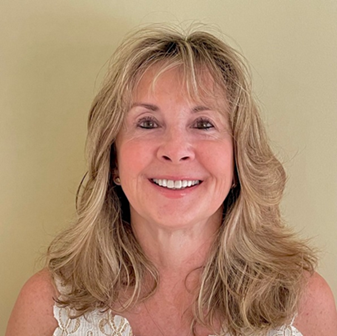

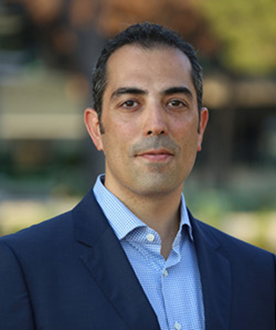
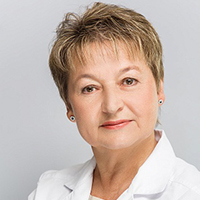






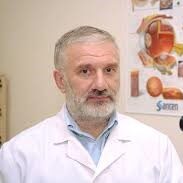


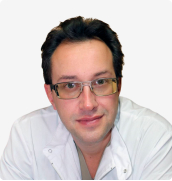
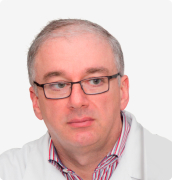
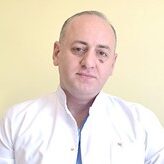
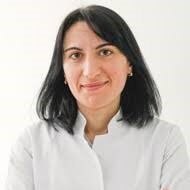


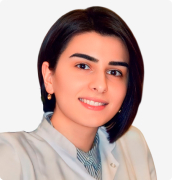

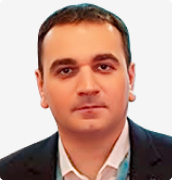

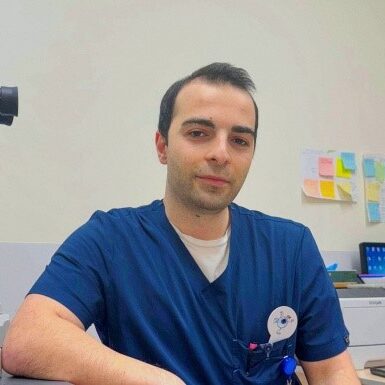
Executive Secretary of the “Association for Ophthalmology and Strabismus” in Russia
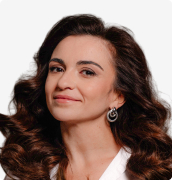
Sati Agagulyan
Main Topics
- Diagnostics and treatment of strabismus. Strabismus Surgery
- Diagnostics and treatment of amblyopia
- Congenital and juvenile glaucoma
- Congenital cataracts
- Problems of refraction and accommodation
- Correction of vision in children
- Retinopathy of prematurity – new aspects of treatment
- Visual impairment and blindness in children
- Ophthalmooncology in pediatric practice
October 3: Bioli Velness Resort
1 Bioli St, Tbilisi (15 min. from city center)
Conference buses will depart from Biltmor Hotel, every 10 min, from 08:00 to 09:00 (AM) or by taxi (cost 5$).
08:00 – 10:00 Welcome coffee and registration
10:00 – 18:00 Conference
October 4-5: Biltmor Hotel.
29, Shota Rustaveli ave, Tbilisi.
October 4, 20:00 Gala-Dinner, “Mtatsminda restaurant”, Mtatsminda park (Buses will depart from 19:15 to 19:45, from Biltmor hotel)
October 5: Biltmor Hotel. 29, Shota Rustaveli ave, Tbilisi.
I want to be a part of it
Choose the format of participation
Pay the registration fee
After payment, we will contact you to confirm your participation and discuss any questions about the conference (email/Whatsapp/call).
See you in Tbilisi!
Travel and hotels
| ActiGroup Tour Company
|
Web site https://www.actigroup.am/
Tel. +37443494154 Manager Natalya Korovina |
| Partner hotels | The Biltmore Hotel Tbilisi ★★★★★
Tbilisi Marriott Hotel 13 Shota Rustaveli Ave ★★★★★ |
| Travel agencies in Georgia | Discover Georgia |
Abstract Submission
Submission Guidelines for Authors
The TIOC 2025 “World of Pediatric ophthalmology in Tbilisi” accepts submissions for Free Papers, Oral present, and Videos.
All abstracts must be submitted in English exclusively via email to tiocgeo@yahoo.com, Please include the word “Abstract” in the subject line of your email and attach the file containing your abstract.
AUTHORS
FIRST (PRESENTING) AUTHOR
- The first author will be the presenting author.
- The first (presenting) author is expected to register and pay the full registration fee, attend the Congress, and deliver the presentation.
- An accurate email address must be provided for the first (presenting) author. Abstract submission results and abstract-related correspondence will be sent exclusively to the first author via email.
CO-AUTHOR(S)
- A maximum of FIVE co-authors are allowed for each abstract.
- Provide full names and affiliations as they should appear in publications. Initials are only accepted for middle names, if applicable.
ABSTRACT TITLE
- The title must be concise, avoiding abbreviations.
- Use AMA Manual of Style for title formatting. Online title capitalization tools may be used as a quick reference.
ABSTRACT CONTENT
Abstract content (excluding title, authors, highest degrees, and institutions) should include the following headings:
- PURPOSE
- METHODS
- RESULTS
- CONCLUSIONS
- The abstract must not exceed 250 words.
- Graphs, tables, images, and references should NOT be included.
- Do not mention the names of affiliated institutes, academic institutions, hospitals, eye centers, or individuals involved in the study. Non-compliance will result in outright rejection.
- Define all abbreviations when first used by placing their full form in parentheses.
It is the author’s responsibility to submit an abstract with correct spelling and grammar. The Selection Committee reserves the right to edit abstracts with significant spelling or grammatical mistakes.
ACKNOWLEDGEMENT
All successfully submitted abstracts will receive an approval notification via email. If you do not receive an acknowledgement within 2 days of submission, please contact the Congress Secretariat at tiocgeo@yahoo.com.
DEADLINES
- Authors are encouraged to submit their abstracts early to avoid system congestion or last-minute issues.
- Abstracts can be revised until June 1, 2025 (Sunday). Only the latest version will be reviewed.
- Late submissions will NOT be accepted.
REVIEW PROCESS
- Submitted abstracts will undergo peer review by the Selection Committee.
- The review process is confidential, and the decision is final.
PRESENTATION FORMATS
- Format Requirement: Presentations should be prepared in PowerPoint format.
- Submission Method: Presentations must be sent via WeTransfer to tiocgeo@yahoo.com.
- Authors may be asked to change their presentation format as a condition for acceptance.
- The TIOC holds the copyright to all materials presented and may reproduce them in any form for distribution.
Free Papers & Videos
Free Papers:
- Select the appropriate category when submitting an abstract.
- Free paper presentations are oral presentations. Authors will present talks lasting 5–8 minutes at the Congress.
Videos:
- Video abstracts must be uploaded by June 1, 2025.
- Videos should not exceed 8 minutes and must be in MP4 format.
- Videos will be evaluated on their scientific merit, educational value, originality, quality, conciseness, audio-visual effects, and editing.
- Submission Method: Videos should be sent via WeTransfer to tiocgeo@yahoo.com.
CHECKLIST
Before submission, ensure:
- The study provides sufficient data leading to clear outcomes.
- Names of affiliated institutes, institutions, hospitals, and individuals are omitted.
- The abstract clearly states the Purpose, Methods, Results, and Conclusions.
- The study is conducted with proper methodology.
- The abstract is proofread and/or edited by a native English speaker.
- The word limit is adhered to.
Financial disclosures for all authors are included.
Contact Us
Phone: +7 (964) 722 94 02, +7 (495) 185-01-90
E-mail: info@raos.org
Приглашение на конференцию
Dr. Faruk Örge, Head of the Department of Pediatric Ophthalmology and Strabismology, Professor, UH Cleveland Medical Center, USA
Dr. Örge will introduce us to the development of the American Association for Pediatric Ophthalmology and Strabismus (AAPOS) program, which enables pediatric ophthalmologists to train residents in theoretical and practical skills using a virtual reality platform. Currently, the solution is being used for diagnosing virtual patients with retinopathy of prematurity and for training in laser coagulation and intravitreal injection techniques.
Andrea Molinari, President of the ISA (International Strabismological Association) and Director of the Pediatric Ophthalmology and Strabismus Fellowship Program at Fundación Metrofraternidad, Metropolitano Hospital (Quito, Ecuador).
Luis Javier Cárdenas Lamas is the President of the Latin American Society of Pediatric Ophthalmology (La Sociedad de Oftalmología Pediátrica Latinoamericana) and a pediatric ophthalmologist based in Mexico. He has spoken at over 100 international conferences and has been invited as a speaker to numerous countries, including Colombia, China, Spain, the USA, Argentina, Venezuela, Puerto Rico, Chile, Costa Rica, Malaysia, Ireland, the Czech Republic, Italy, France, and Russia.
He is an active member of several national and international societies, including the Strabismus Committee of the American Association for Pediatric Ophthalmology and Strabismus (AAPOS) and the International Strabismological Association (ISA). Additionally, he serves as Deputy Editor of the Journal of Strabismus and Pediatric Ophthalmology at the Prieto-Díaz Ophthalmological Institute in Argentina
Giovanni Marcon, President of the Italian Strabismological Association, pediatric ophthalmologist, and author of numerous scientific publications on strabismus surgery and oculomotor muscle imaging. He previously served as Secretary of the Executive Committee of the ESA (European Strabismologists Association).
Tamara Wygnanski-Jaffe, President of the International Pediatric Ophthalmology and Strabismus Council (IPOSC), is a Professor and pediatric ophthalmologist. She heads the Department of Pediatric Ophthalmology and Strabismus at Sheba Medical Center in Tel Aviv. For six years, she served as Director of the Israeli Society of Pediatric Ophthalmology and Strabismus. Her research has been published in over 50 peer-reviewed scientific articles.



